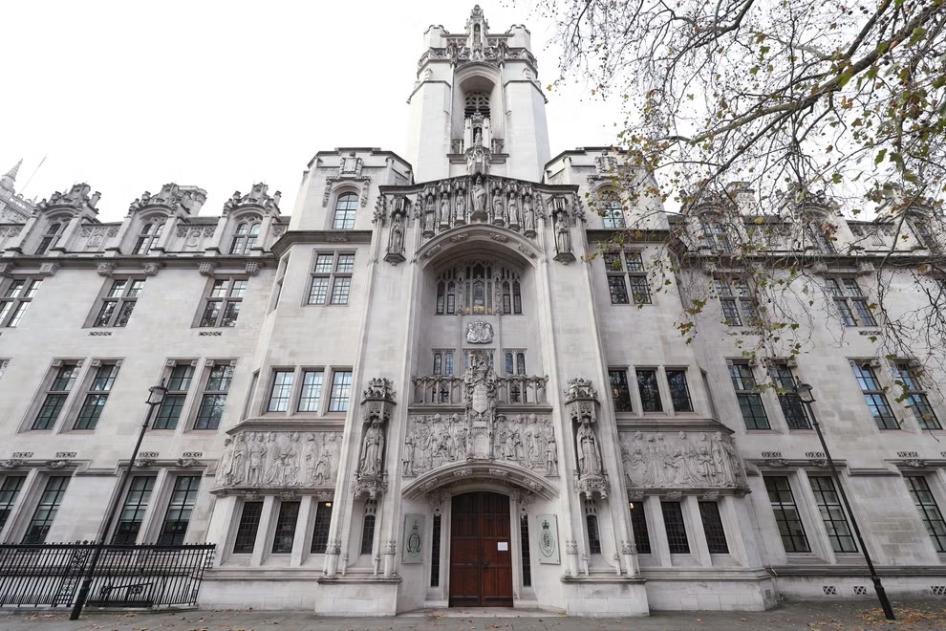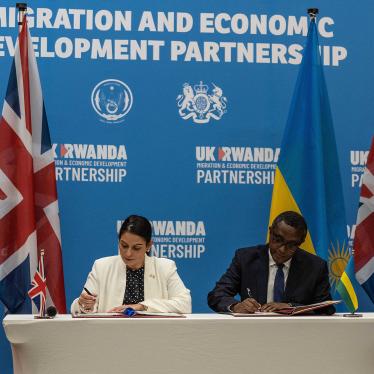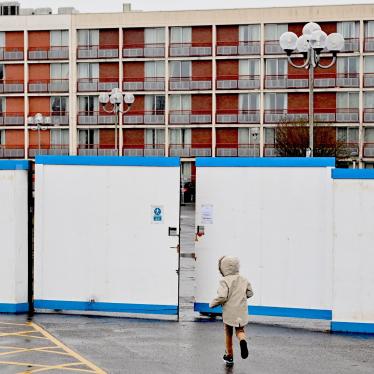“We are always changing phones, and they are always finding the number,” Faustin Rukundo, a former senior member of a Rwandan opposition group living in exile in Leeds, speaks openly about Rwanda’s targeting of its nationals overseas. “Anyone close to me is threatened,” adds his wife, Violette Uwamahoro. It is clear to me that their fears for their own and their families’ safety, both in the UK and Rwanda, are well founded.
Yet this week, the UK government was at the Supreme Court arguing that Rwanda is a “safe third country” to which to send asylum seekers – and that its paper-thin promises that it will respect the rights of asylum seekers can be relied on.
The government is doubling down after a UK court in June found the deal unlawful because asylum seekers sent to Rwanda risk being sent from there back to their home country, where they may face mistreatment. The contrast between what the UK government is saying to defend its asylum deal and the experience of the 150 Rwandans we interviewed, including many refugees and asylum seekers, is jarring.
We documented a dozen cases of killings, kidnappings, enforced disappearances, and attacks on Rwandans living abroad, as well as the misuse of national and international law enforcement and police cooperation to seek the arrest and deportation of dissidents back to Rwanda. We also found that interviewees’ relatives in Rwanda have been arbitrarily detained, forcibly disappeared, tortured, prevented from leaving the country, threatened, and harassed, and we heard allegations of killings, to exert pressure on and silence family members abroad.
In 2017, Uwamahoro, a naturalized UK citizen, was detained incommunicado, threatened, and asked to spy on her husband when she returned to Rwanda for her father’s funeral. As she was being interrogated, Rwandan officials asked her why she was married to an enemy of the country and why she hadn’t cut ties with him before coming to Rwanda.
In 2019, Rukundo was informed he had been the target of Pegasus, the powerful spyware that can access a phone’s contact lists, messages, track calls, collect passwords, localise the target device, and hijack its microphone and video camera to turn them into surveillance tools.
Since 2021 alone, we documented five suspicious killings of Rwandans in Mozambique, South Africa, and Uganda, two arbitrary detentions and attempted forced returns of Rwandan dissidents in Uganda, and the enforced disappearance of a former journalist and critic in Mozambique. It would seem that whatever assurances the Rwandan government has given the UK don’t extend to ensuring the protection and the rights of Rwandan refugees and asylum seekers around the world.
Home secretary Suella Braverman has said that it is her “dream” and “obsession” to witness the first flight of asylum seekers to Rwanda. The government presents Rwanda as a progressive partner providing solutions to global problems. Most recently, Rwanda’s high commissioner to the UK trivialized the police shooting and killing of 12 Congolese refugees in 2018, who were protesting a cut in food rations.
Since the deal was announced, the UK has been conspicuous in its silence on Rwanda’s human rights record, including its support for the M23, an abusive armed group in eastern Congo that has committed atrocities, triggering a catastrophic humanitarian crisis and the displacement of over one million people.
While the US and EU were quick to call on Rwanda to end its support to the M23 and imposed sanctions on Rwandan officials, the UK limited itself to criticizing “external support to armed groups.”
A Foreign Office memo, revealed in court proceedings to challenge the UK-Rwanda deal, stated that, in March 2021, UK officials had informed then foreign secretary Dominic Raab that if Rwanda was chosen as a partner for the asylum deal, the government would need to “constrain UK positions on Rwanda’s human rights record, and to absorb resulting criticism.” Former UK foreign minister Justine Greening has warned that the UK’s deal with Rwanda risks “downgrading” its foreign policy.
The UK should have a coherent policy when it comes to Rwanda. Doggedly pursuing its cruel and unlawful asylum deal with Rwanda endangers vulnerable asylum seekers arriving in the UK and emboldens a government whose malign influence looms large well beyond its borders.
The UK should be speaking up against human rights violations by the Rwandan government and abandon its dangerous asylum deal once and for all.









